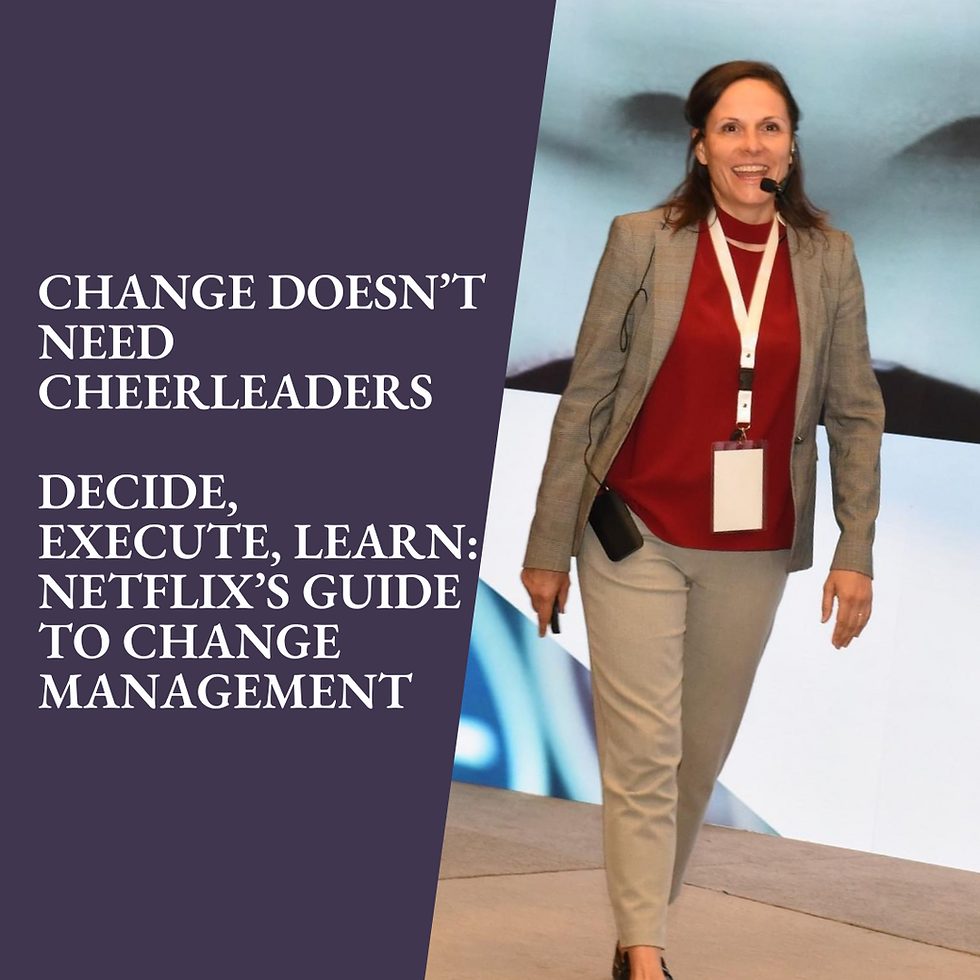Empathy - The Way You Never Looked at It
- Szilvia Olah

- Aug 1, 2023
- 2 min read
Updated: Apr 8, 2024
I have never been convinced about the empathy narrative, especially in leadership development. There are many reasons, one of which is that genuine empathy is genetically based, making it very hard to learn. But I have an even bigger problem with empathy, in fact, with empaths in general. Empathy is so highly regarded that nobody questions it. So here, I'd like to give you another perspective on empathy that nobody wants to discuss.
I am very cautious of highly empathetic people because of the questions psychologists and therapists ask them:
Who made you responsible for the safety and wellbeing of others?
Who or what made you predict, anticipate, and manage someone else's behaviour and emotions through your behaviour, words, or actions?
What happened to you that made you hyper-aware and alert to the change in someone's physiological signs or actions? To the tone of their voice, the way they open the door, put the plate down or look at you?
Why must you be so alert and then adjust your behaviour to others to feel safe?
Now you see, these feelings and responses we are eager to advocate for and teach don't come from a healthy environment. These are survival and protective responses. When people tell me I am highly empathetic, I always think, "What happened to you that made you react like that to others around you?"
There is healthy (natural, genetic-based) empathy that doesn't cause one to adjust behaviour or evoke emotional or physiological reactions. Yes, we all cry when a dog dies, but that's not that.
Healthy empathy honours other's emotions or struggles. Unhealthy empathy owns them and alters their behaviour around them. Healthy empathy comes naturally, and it's easy. An unhealthy one exhausts people.
So, when it comes to leadership development and hiring, the question is, why exactly do we want leaders to be empathetic? What does empathy that we want, look like?
We don't want hyper-sensitive people leading and managing others because they never make objective decisions. All they do is respond to others' moods, energy, wishes, actions, and reactions. They tiptoe around others, which cannot be good for business and the people around them. We often cannot even see the person behind these coping mechanisms. Is this really what we want? Maybe empathy is not as simple as feeling for others. Empathy can come from a really bad place.
Let's teach leaders about healthy empathy and establish their empathy type: Cognitive, Emotional, or Compassionate. Let's also teach them about objective decision-making, building teams, composure, self & social awareness. That's all we really need to be great leaders.

.png)



Comments